Ukraine’s progress on the path to the EU: Shadow Report was presented in Kyiv
On 23 October, a presentation of the Shadow Report on monitoring and assessing Ukraine’s progress on the path to the EU took place in Kyiv. The report was prepared by a coalition of civil society organisations led by the Agency for Legislative Initiatives, including the Human Rights Centre ZMINA, with the support of the EU Project “Pravo-Justice”.
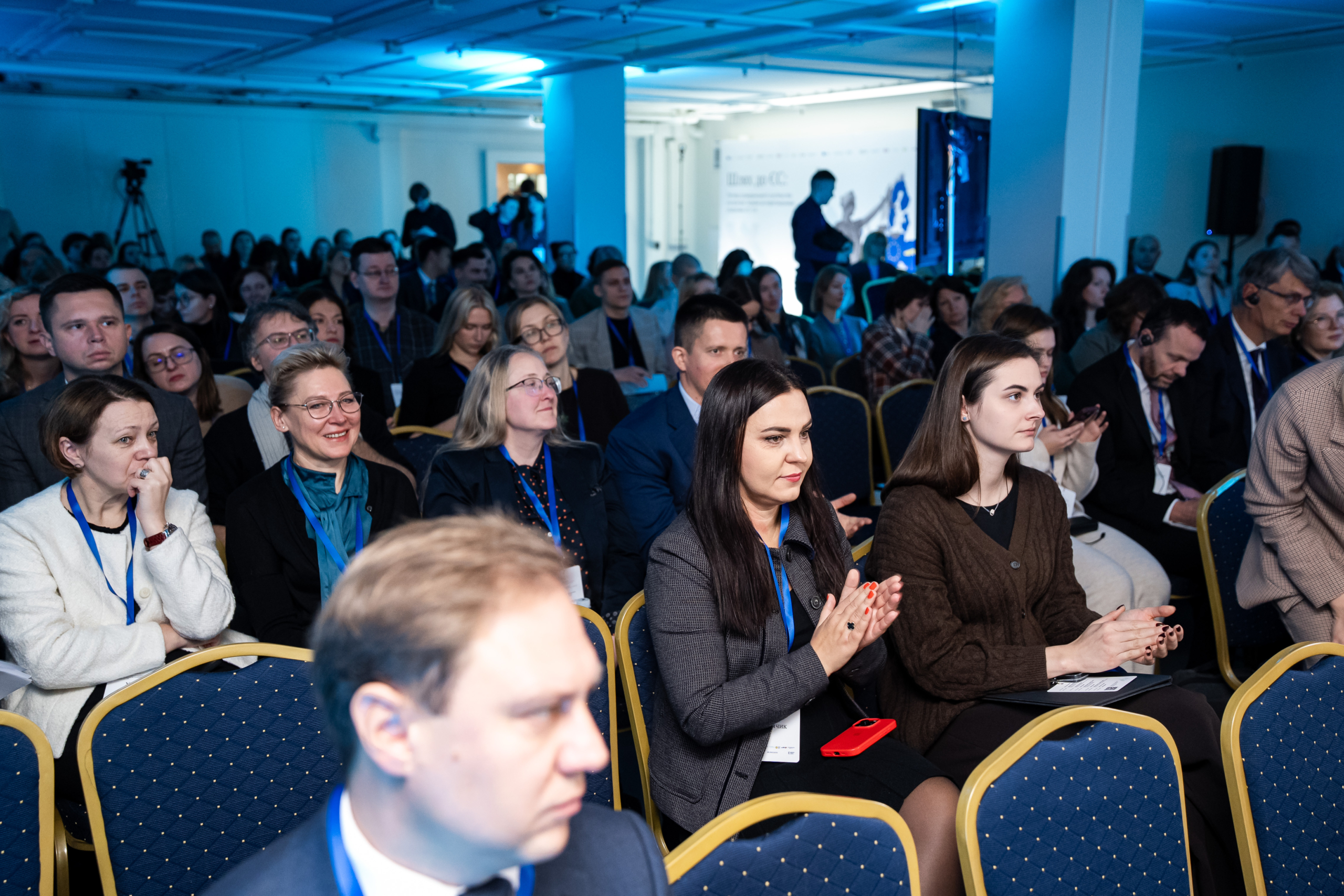
The event brought together leaders of judicial and anti-corruption bodies, other state institutions, representatives of civil society and international partners. All discussions and debates focused on analysing key areas of justice, anti-corruption, and the protection of human rights and fundamental freedoms. Particular attention was paid to the effectiveness of state bodies, including parliament, the role of civil society, and the need to integrate international standards into national legislation.
This year, in addition to Chapter 23, “Justice and Fundamental Rights”, ZMINA also worked on Chapter 24, “Justice, Freedom, and Security”.
Deputy Prime Minister for European and Euro-Atlantic Integration of Ukraine Taras Kachka addressed the participants in a video message.
“Ultimately, the assessments (Ed. – in the Shadow Report) are quite positive. The question is what catches your eye more: the fact that institutions are working well, or what comes after the word “but”. It is important to me that this year has been very productive for the NACP, NABU, HQCJ, and HCJ, which work daily. Sometimes, daily work is more important than some kind of achievement. I think ahead of us lies more routine work, fewer sensations, and more practical results,” said Kachka.
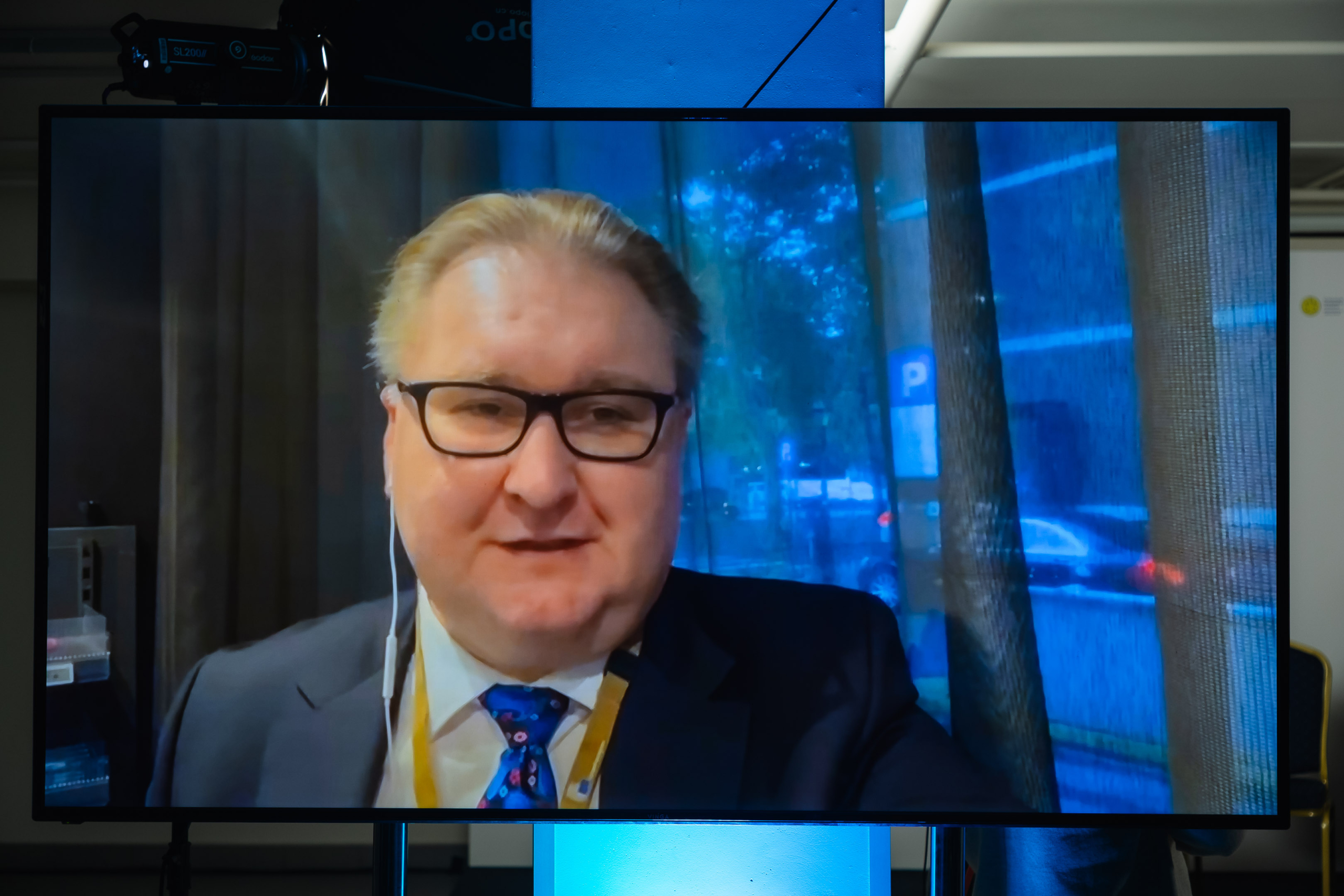 Taras Kachka
Taras KachkaThe preparation process, drafting, and importance of the Shadow Report were outlined by the Head of the EU Project “Pravo-Justice”, Oksana Tsymbrivska, the Executive Director of the NGO Agency for Legislative Initiatives, Svitlana Matviienko, and the Deputy Executive Director of Transparency International Ukraine, Anastasiia Mazurok.
During the first panel, “Authorities and Civil Society: Mutual Support on the Path to the EU”, speeches were given by Deputy Head of the Office of the President Iryna Mudra, Deputy Minister of Justice of Ukraine for European Integration Liudmyla Suhak, Deputy Chair of the High Council of Justice Oksana Kvasha, President of the Supreme Court Stanislav Kravchenko, Head of the High Anti-Corruption Court Vira Mykhailenko, and the Chair of the High Qualification Commission of Judges of Ukraine, Representative of the Ukrainian Parliament Commissioner for Human Rights on International Cooperation and European Integration Mykhailo Spasov. The speakers discussed the interaction between the authorities and civil society in supporting institutions, promoting reforms and ensuring the transparency and efficiency of state bodies.
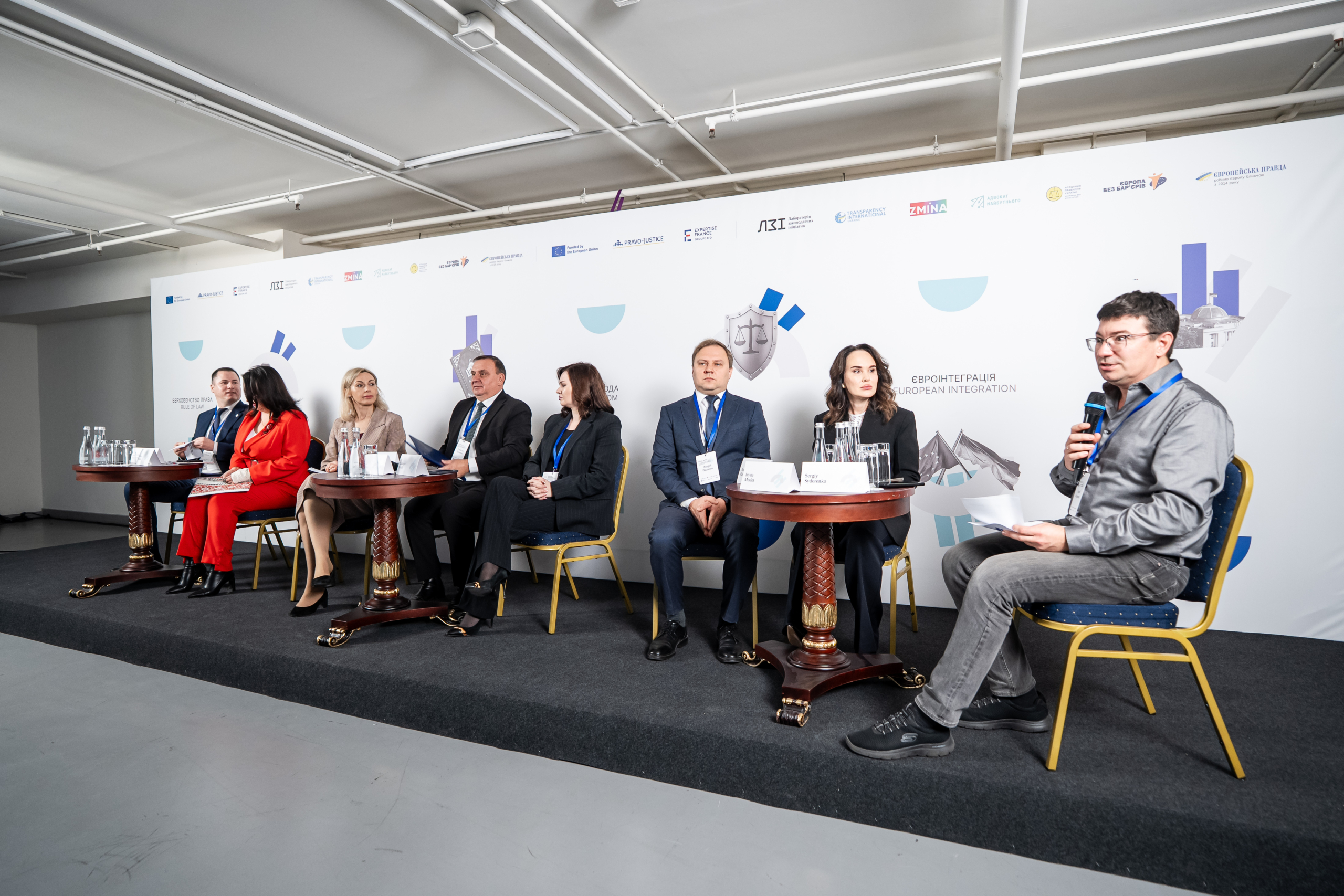
Iryna Mudra noted that the preparation of such a report demonstrates “the maturity of our civil society and its concern for state processes, as well as the maturity of the authorities, who are ready to listen and engage in constructive dialogue“.
“Throughout the year, the president’s powers were not hampered. Judges were appointed based on submissions from the High Council of Justice following recommendations from the High Qualification Commission. The issue of filling vacancies in the courts was definitely not hampered on the part of the President. Last year, we issued more than 500 decrees on the appointment of judges, and this year, about 50. Currently, there are several submissions from the High Council of Justice in the Office that are still awaiting presidential decrees,” said the Deputy Head of the Presidential Office.
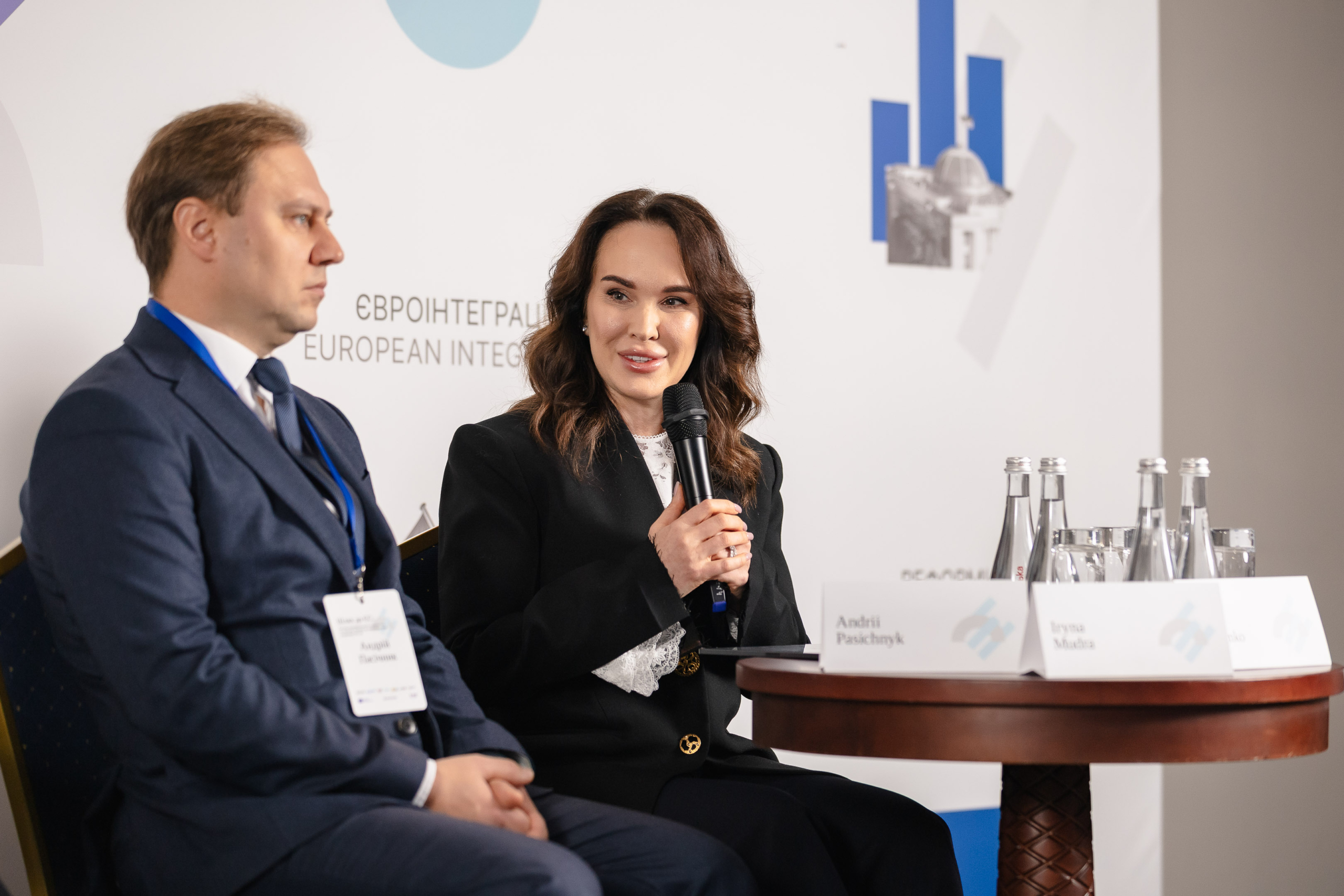 Iryna Mudra
Iryna MudraDuring the presentation of the Shadow Report on Chapter 23, “Justice and Fundamental Rights”, participants analysed the results of competitive selection processes, quorum issues, and other judicial reform issues. The role of civil society in monitoring justice and the need to strengthen the institutional capacity of judicial bodies were discussed.
The Head of the Board of the Human Rights Centre ZMINA, Tetiana Pechonchyk, shared her main conclusions regarding human rights and the key challenges that Ukraine must consider in the process of European integration.
She noted that the work on the section on human rights and fundamental freedoms was the result of cooperation between many human rights organisations, including, in addition to the Human Rights Centre ZMINA, the Digital Security Lab, the Kharkiv Institute for Social Research, the Social Action Centre, Fight for Right, the Congress of National Communities of Ukraine, Fulcrum, the Ukrainian Legal Advisory Group, CF Right to Protection, the Centre for Democracy and Rule of Law, and La Strada Ukraine.
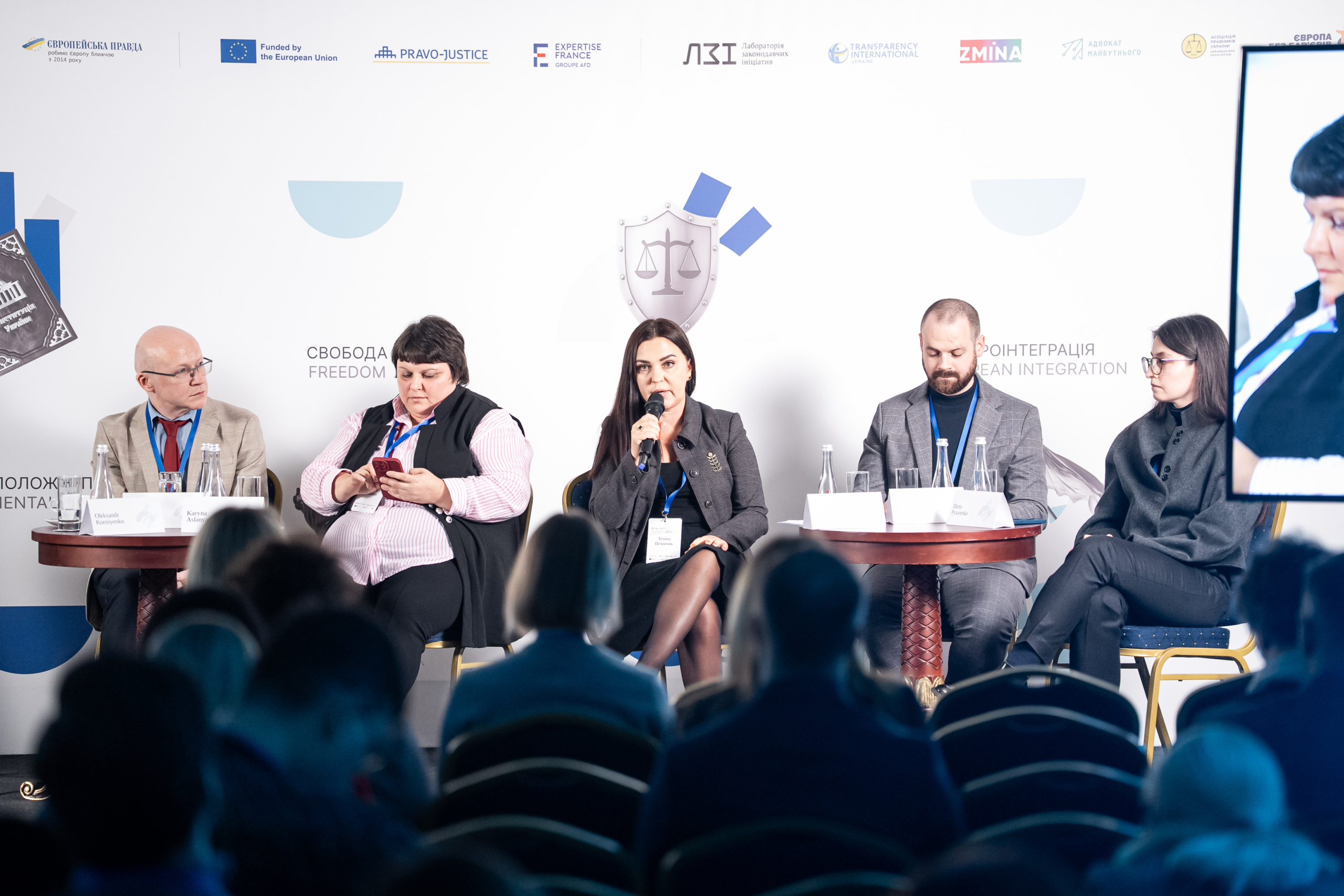
According to her, the Shadow Report for 2024 is twice as large as last year’s and covers more than a thousand pages of analysis, reflecting both progress and existing problems in the field of human rights.
At the level of framework mechanisms, Pechonchyk emphasised that particular attention should be paid to updating the National Human Rights Strategy, which has lost its relevance and requires a new action plan.
She also drew attention to the need to strengthen the institution of the Ukrainian Parliament Commissioner for Human Rights, which should be competent, independent and financially viable: “The current law on the Commissioner is outdated and needs to be amended. A package of draft laws has been submitted to parliament, which contains both important innovations and some risks. In particular, the drafts remove civil society participation in the procedure for electing the ombudsman and retain the possibility of their dismissal by a simple majority vote during martial law, which undermines the independence of the institution“.
In addition, Pechonchyk emphasised the importance of working on the Roadmaps adopted by the government in May this year, some of which relate to human rights. According to her, despite Hungary’s blocking of the negotiation process with the EU, Ukraine must continue to fulfil its obligations and “do its homework”.
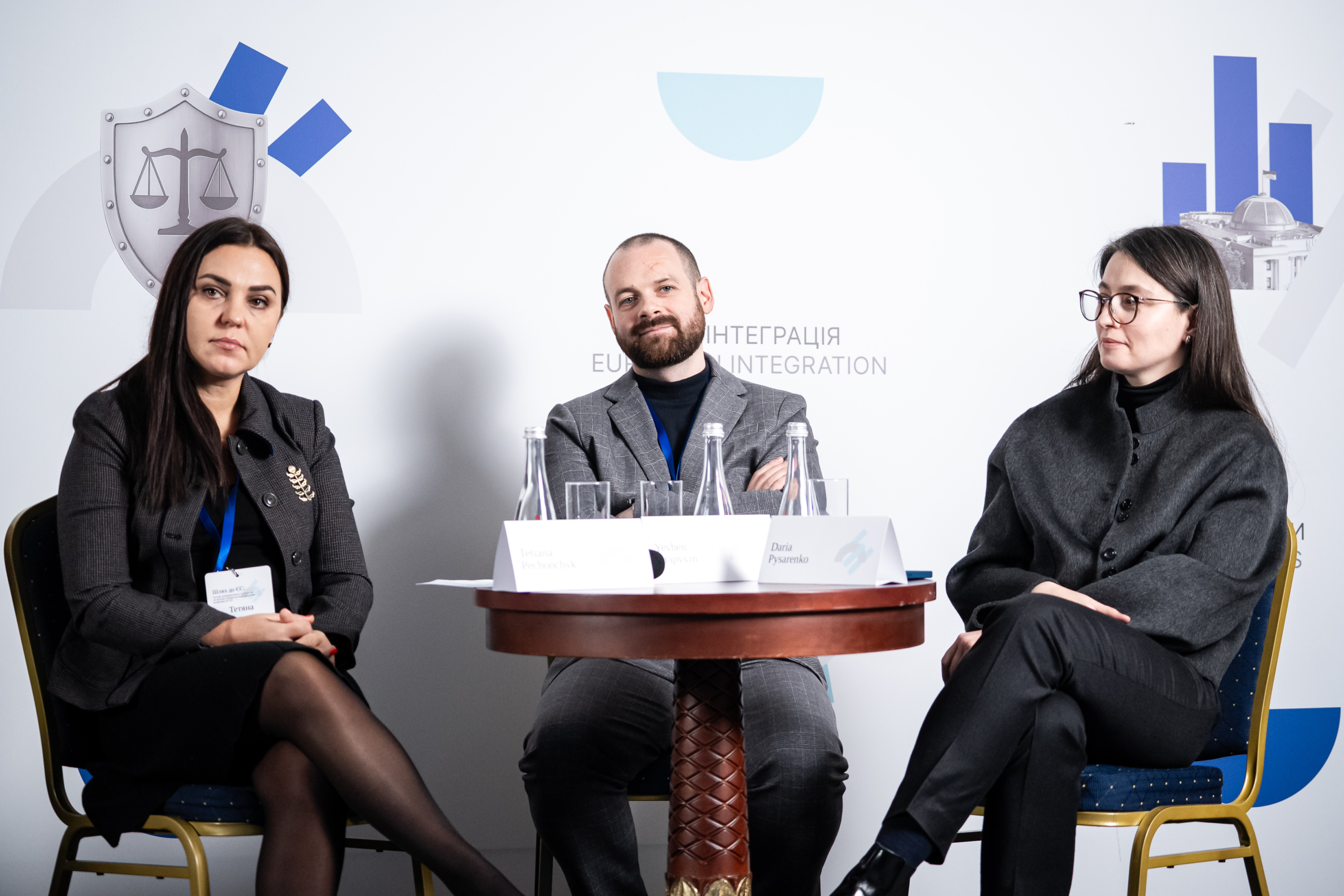
In conclusion, the Head of the Human Rights Centre ZMINA emphasised that the effective implementation of reforms depends not only on their content, but also on the process of interaction between the authorities and civil society.
“We need to make this process more inclusive. Organisations involved in the reform process should receive feedback and understand why their recommendations are or are not being taken into account. We are ready to help ensure that these steps truly contribute to improving the human rights situation and bringing Ukraine closer to the EU,” Pechonchyk concluded.
During the presentation of the Shadow Report to Chapter 24, “Justice, Freedom and Security”, issues were discussed regarding access to legal protection during martial law, cooperation between the Security Service of Ukraine and law enforcement agencies in investigating war crimes, combating human trafficking, and migration.
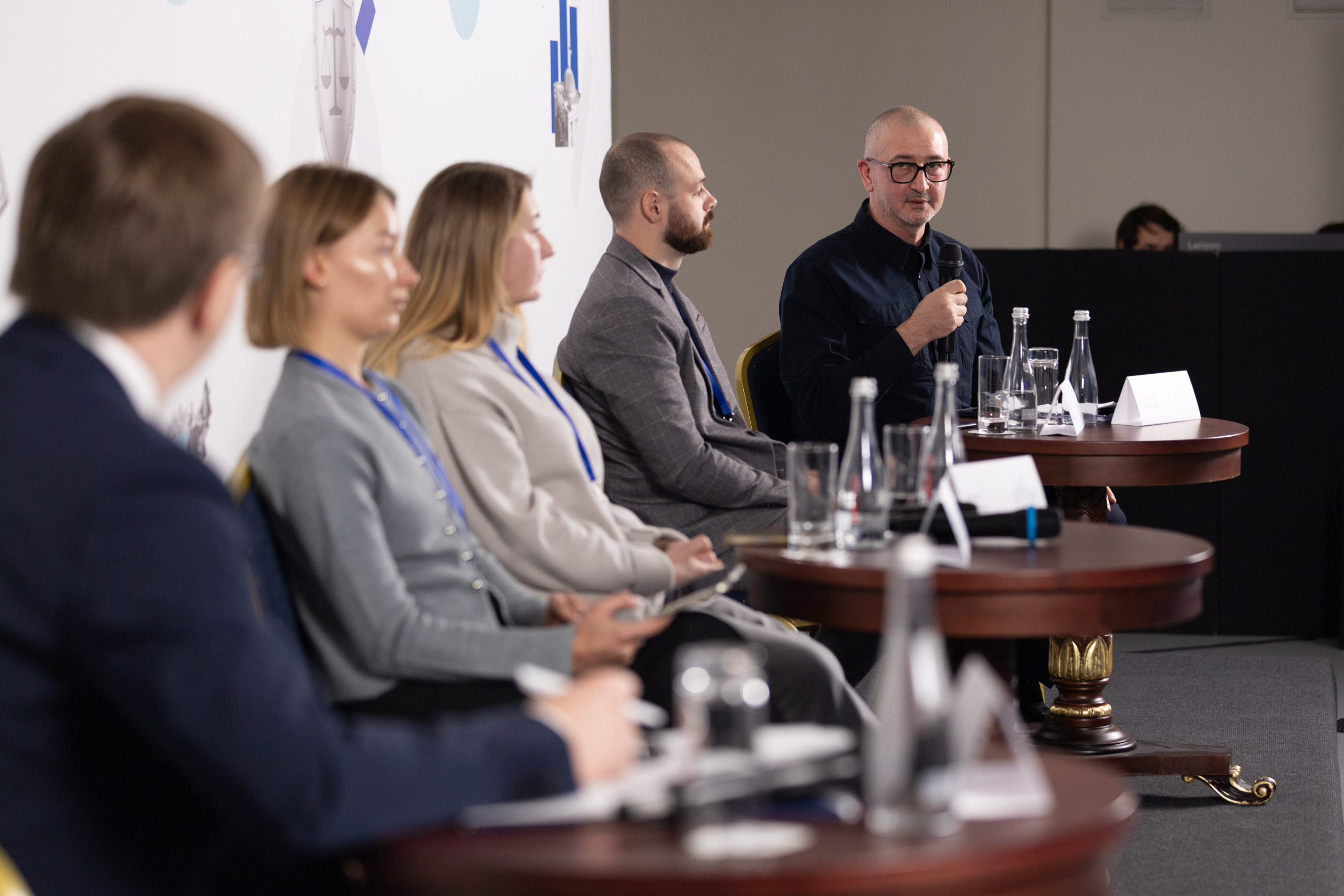
Advocacy Manager of the Human Rights Centre ZMINA, Anastasiia Datsiv, emphasised the importance of a comprehensive approach to human rights protection and the institutional capacity of the state.
“The Shadow Report demonstrates that human rights permeate all policies, and in order to achieve results, it is important to work comprehensively, involving various actors, not just professional ‘bubbles’. Special attention should be given to strengthening institutions, carrying out reforms where necessary, and enhancing cooperation between state bodies,” she noted.
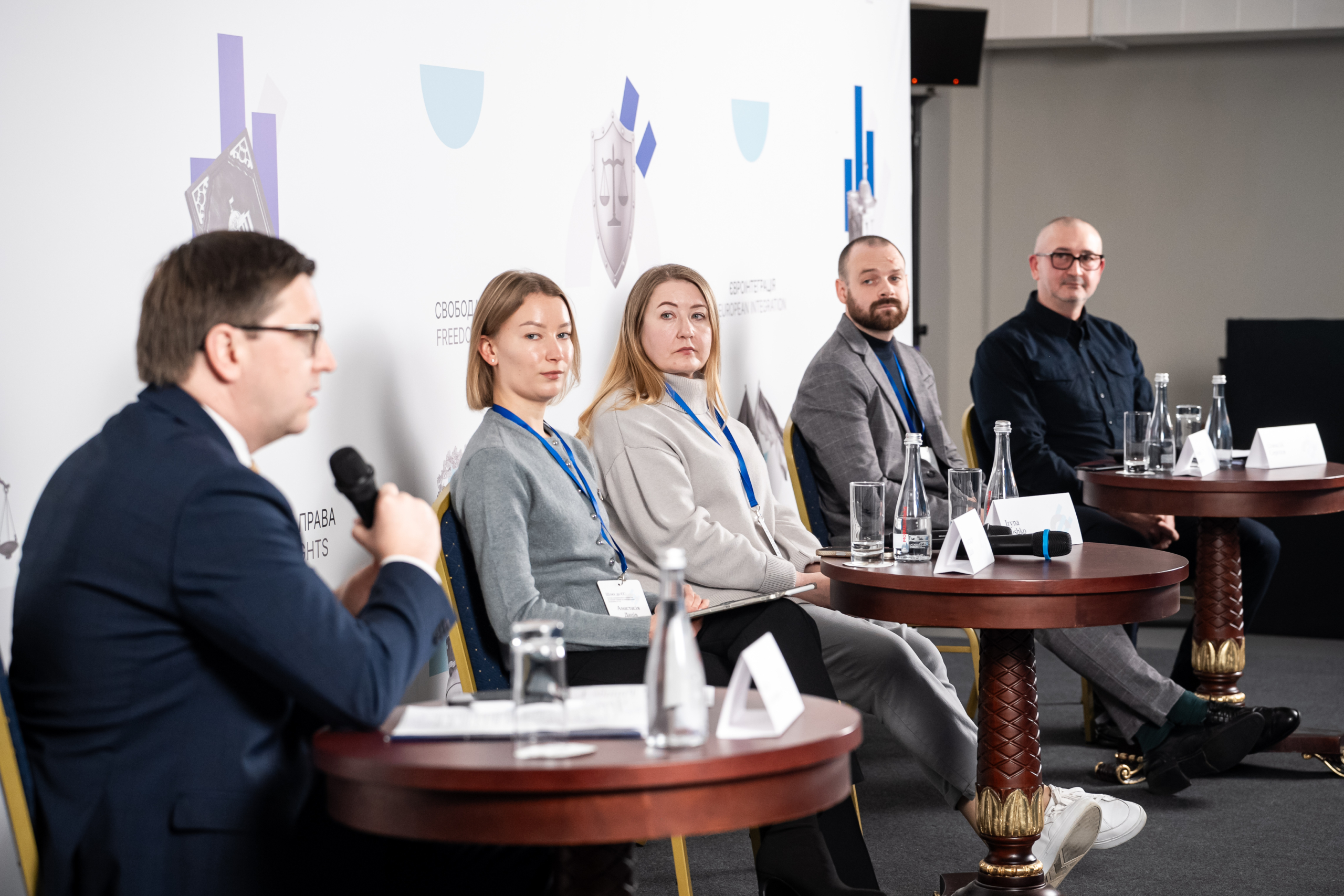
A separate panel discussion, “Promoting Reforms Together: Ukraine and the EU”, was moderated by Serhii Sydorenko, the Editor-in-Chief of European Pravda. The discussion was joined by Deputy Prime Minister for European and Euro-Atlantic Integration of Ukraine, Taras Kachka, the Ambassador of the European Union to Ukraine, Katarína Mathernová, and the Chargé d’Affaires of the Embassy of France in Ukraine, Sébastien Surun.
Participants discussed cooperation between Ukraine and the EU in implementing reforms, integrating European standards into national legislation, and the contribution of civil society in supporting the transparency and effectiveness of reforms.
“The process of joining the EU is not a sprint. It is a marathon… We know that there is a blockage within the 27 (Ed. — EU members) that we need to overcome, but it is not a blockage of the reforms themselves. I know this is not an answer, but the EU is working to find a consensus. There is a problematic process, and right now we are in a somewhat uncomfortable position, where a cluster should be opened because you are ready, yet we have not reached the goal. But we will achieve it,” said Katarína Mathernová.
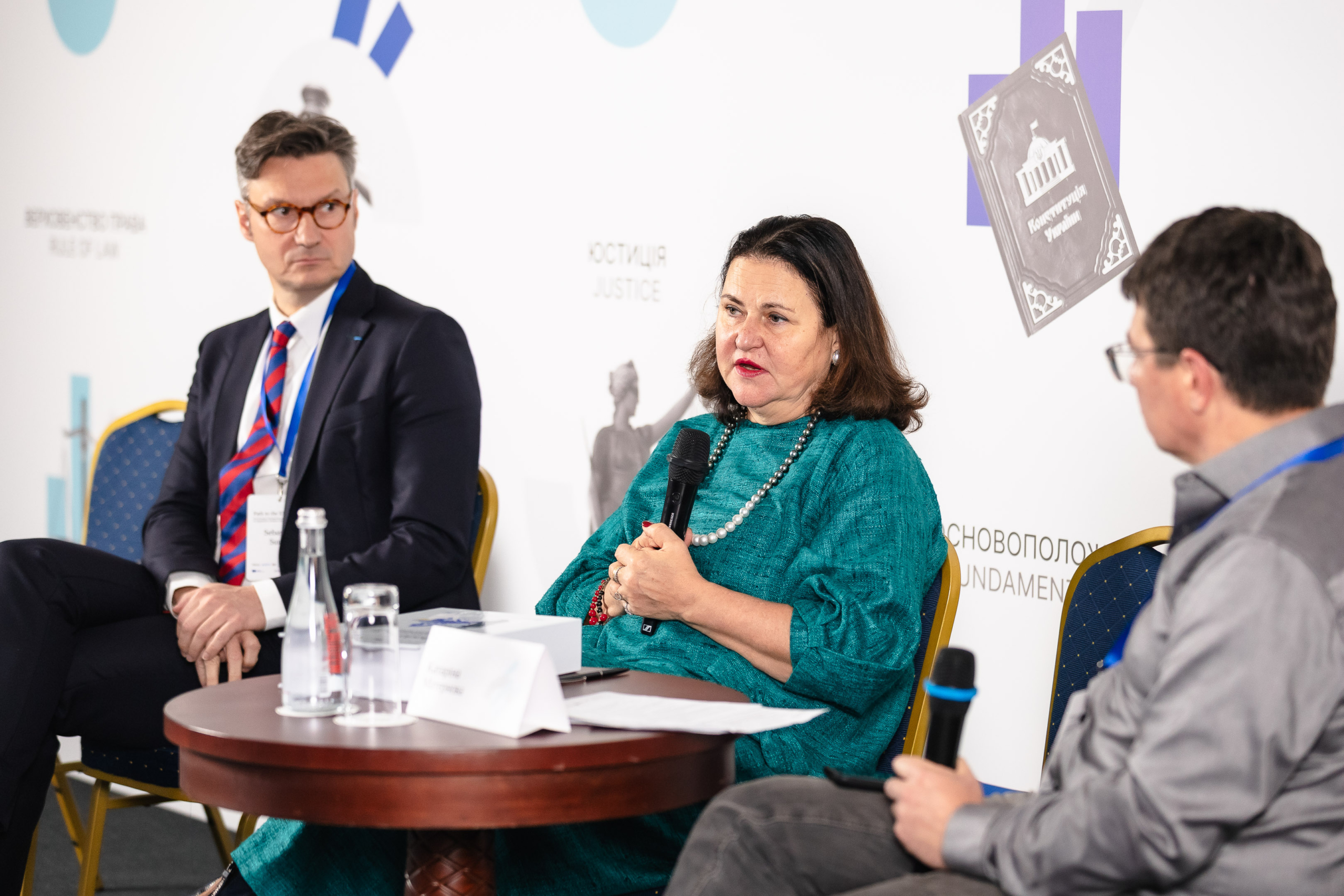 Katarína Mathernová and Sébastien Surun
Katarína Mathernová and Sébastien SurunThe Shadow Report was prepared by a coalition of civil society organisations, led by the Agency for Legislative Initiatives, within the framework of the EU Project Pravo-Justice grant, implemented by Expertise France. Its contents are the sole responsibility of the authors and do not necessarily reflect the position of the European Union.
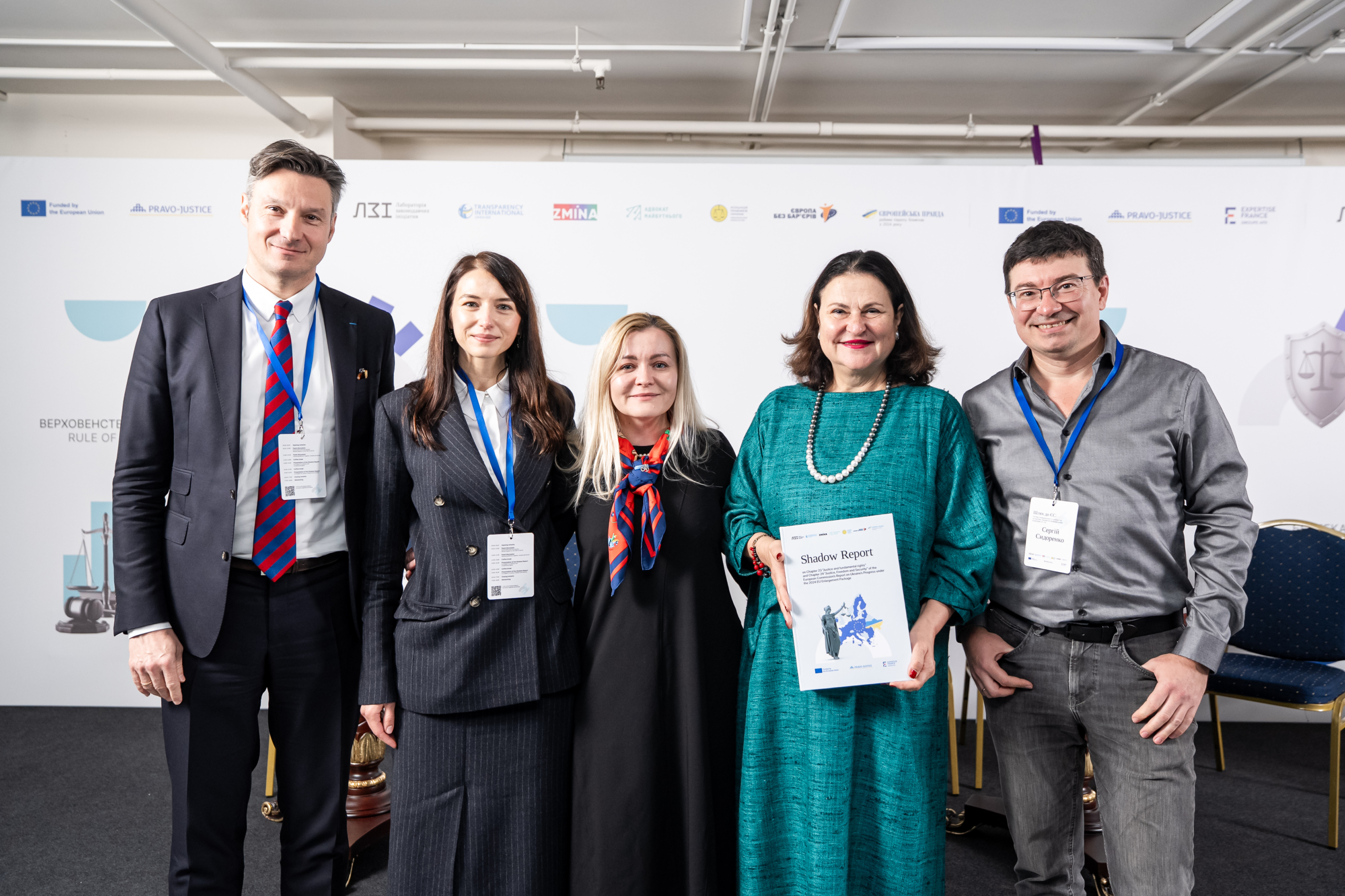
The full text is available in Ukrainian and English.
Photo credit: the Agency for Legislative Initiatives.
If you have found a spelling error, please, notify us by selecting that text and pressing Ctrl+Enter.















